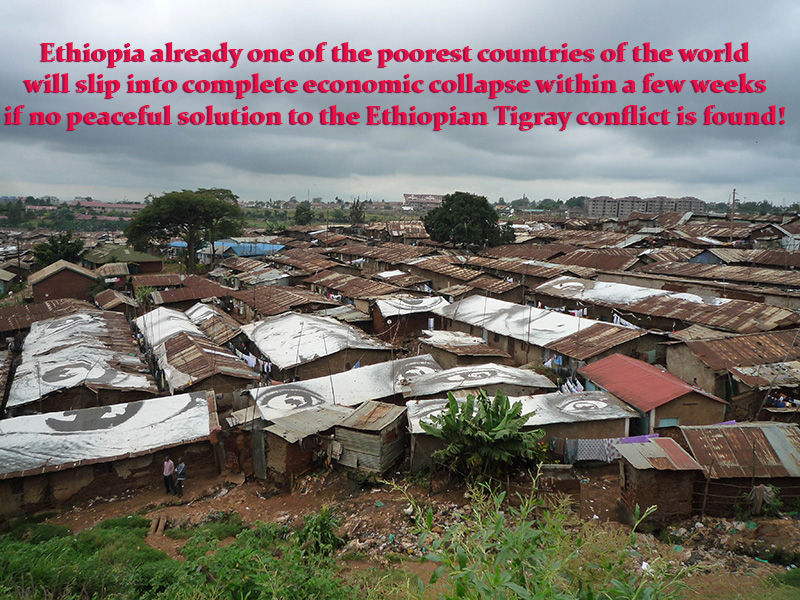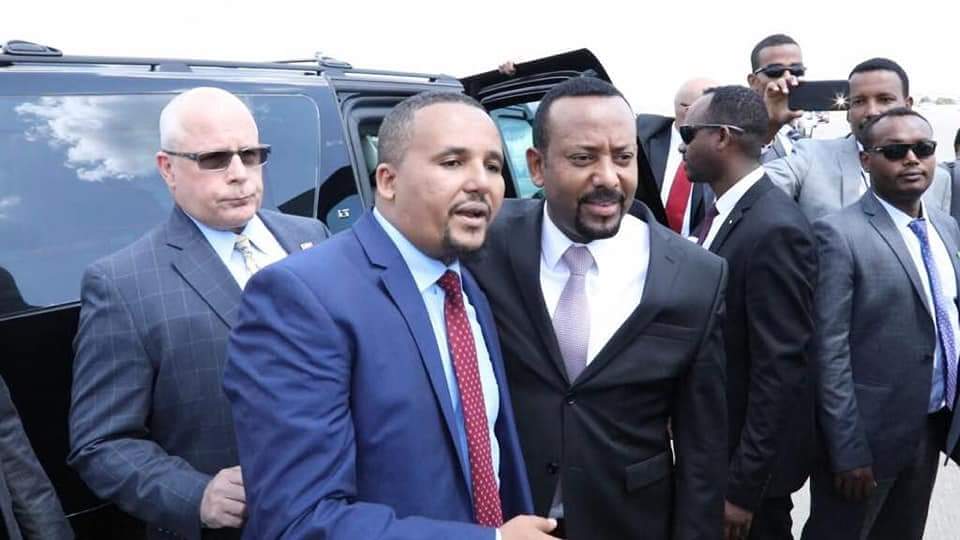
If Ethiopia wants to avoid complete economic collapse it must sue for peace immediately. Even if the Ethiopian government wins a unlikely military victory in the next few months it is heading for unavoidable economic downfall. Ethiopia’s debt to Gross Domestic Product ratio will reach a record setting 70%. The country imports about $14 billion of goods per year, while it exports just $3.4billion. Analysts from the the United Nations and Trading Economics see the economy sinking fast without a chance to recover.
Thus even before the Ethiopian Tigray conflict increasing debt was building each year. As was widely reported Ethiopia with only two months funding left in its overall government funding received an IMF(International Monetary Fund) loan of $408 million in August 2021. With a normal $2 billion a year budget that would cover a little over 4 months. Recent reports of what the government is spending on military costs alone in the Tigray conflict cast even further doubt on Ethiopia’s economic survival
As reported by Europe External Program in Africa in February 2021 an initial payment of $500 million was made by Ethiopian Prime Minister to Eritrea before the invasion of Tigray by Eritrea in November 2020. Then following the exit of the Ethiopian forces from Tigray following the resurgence of the Tigray Defense forces another $500 million was demanded for Eritrea to stay in Tigray. This was likely paid through covert visits of high ministers to Dubai who took significant deposits of Ethiopian gold reserves to pay off Esaias to keep him in the war.
This week it was announced that Ethiopia would now agree to continue to pay 13,600 birr per soldier from Eritrea to Esaias every month. Assuming that there are 50,000 are in Western Tigray this means 680,000,000 birr per month being paid. Meanwhile Ethiopia pays most of its soldiers about 5,160 birr per month. Why is the Ethiopian government paying so much to foreign fighters and so little to its own soldiers? Assuming there are 200,000 soldiers in the Ethiopian forces that means 1, 032,000 birr per month in soldier pay.
Today sources released data Abiy Ahmed gave Turkey $51.6 million in just August for weapons when he met with Turkish President. This increases by another 10% the overall debt burden of Ethiopia. Many business owners are flocking to other countries to exchange birr for dollars and deposit them in banks outside Ethiopia this week.


